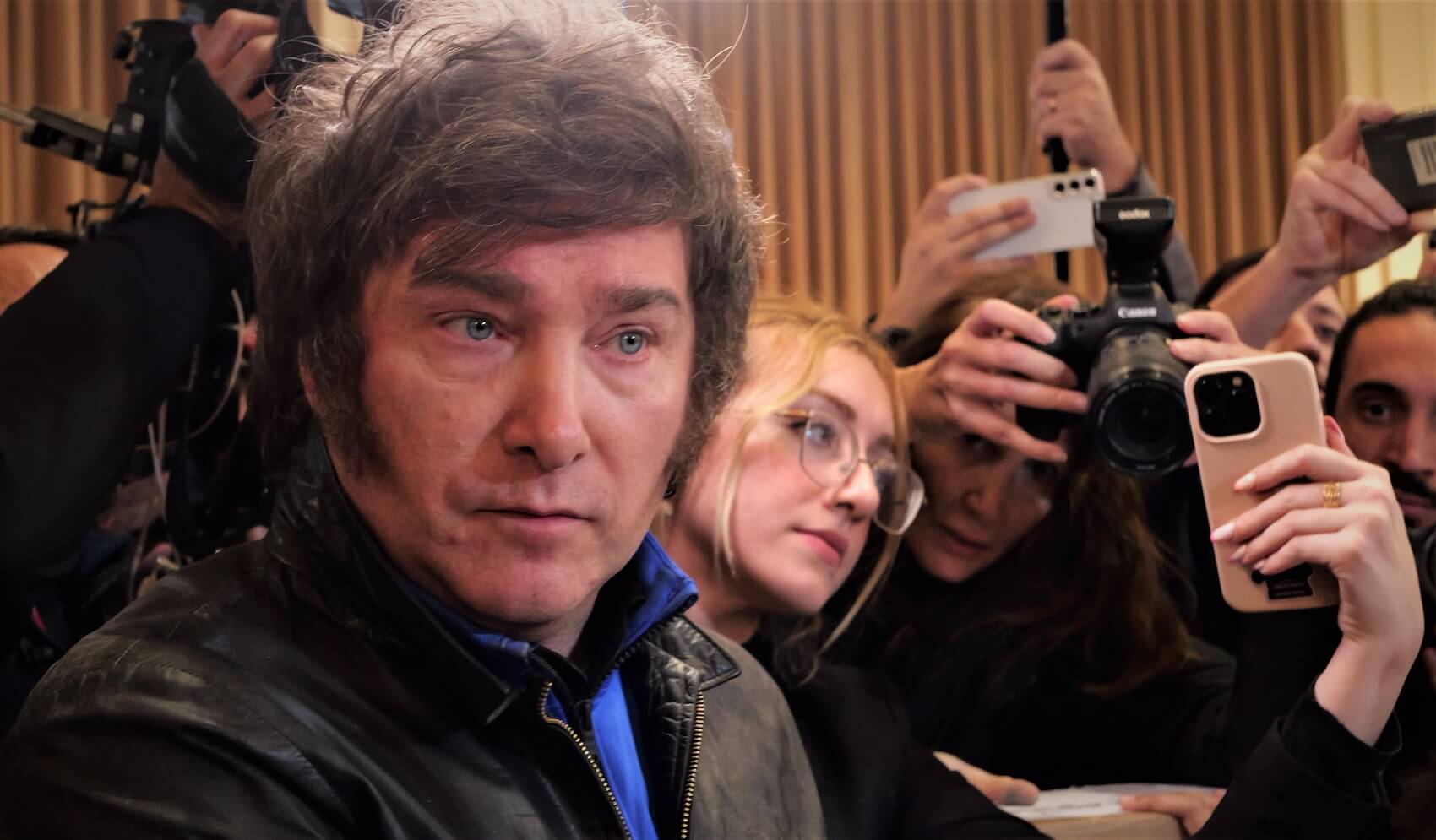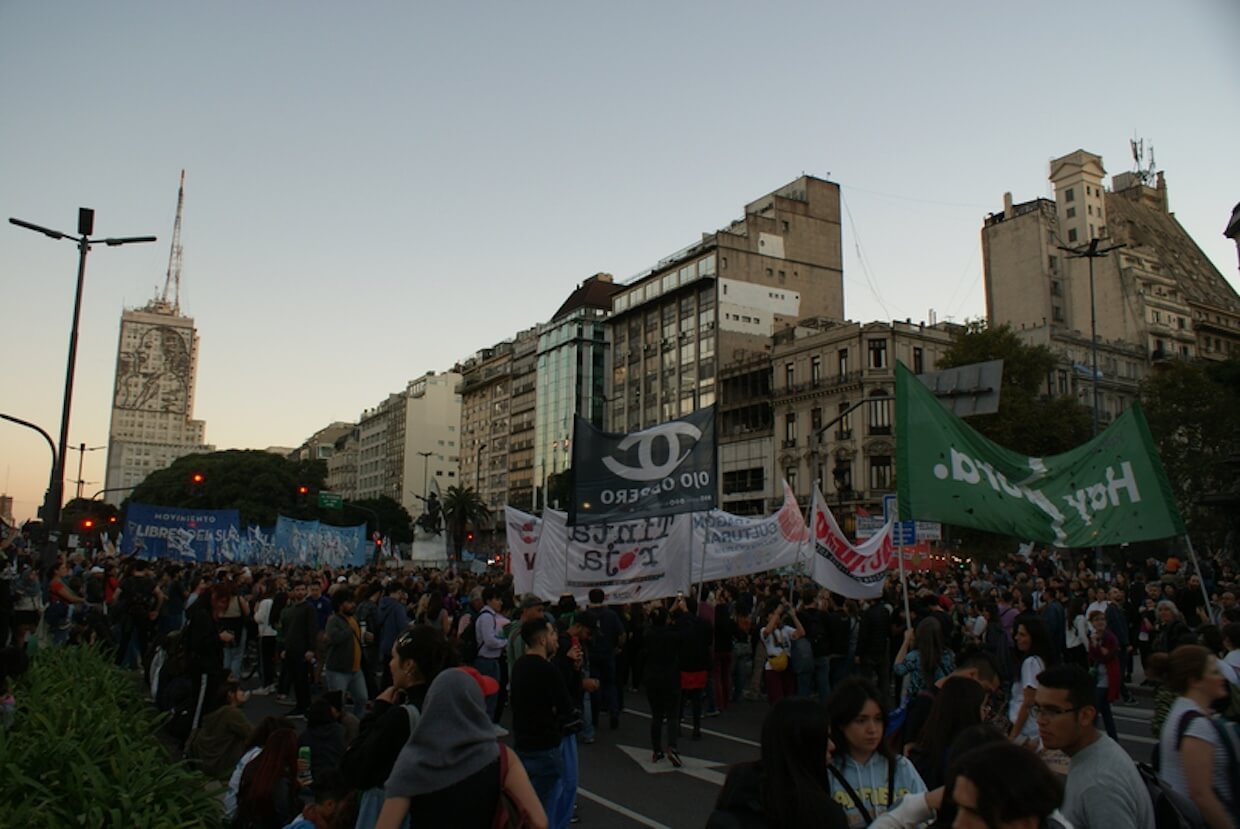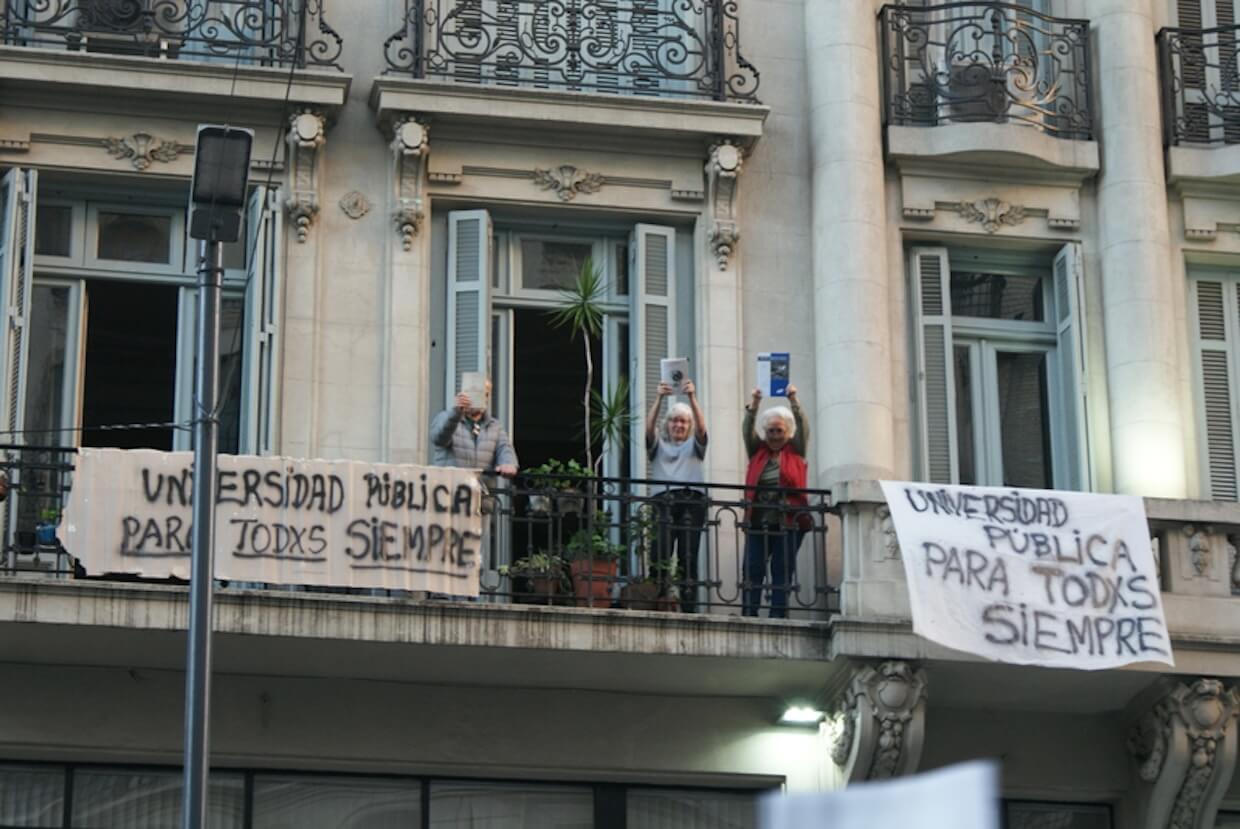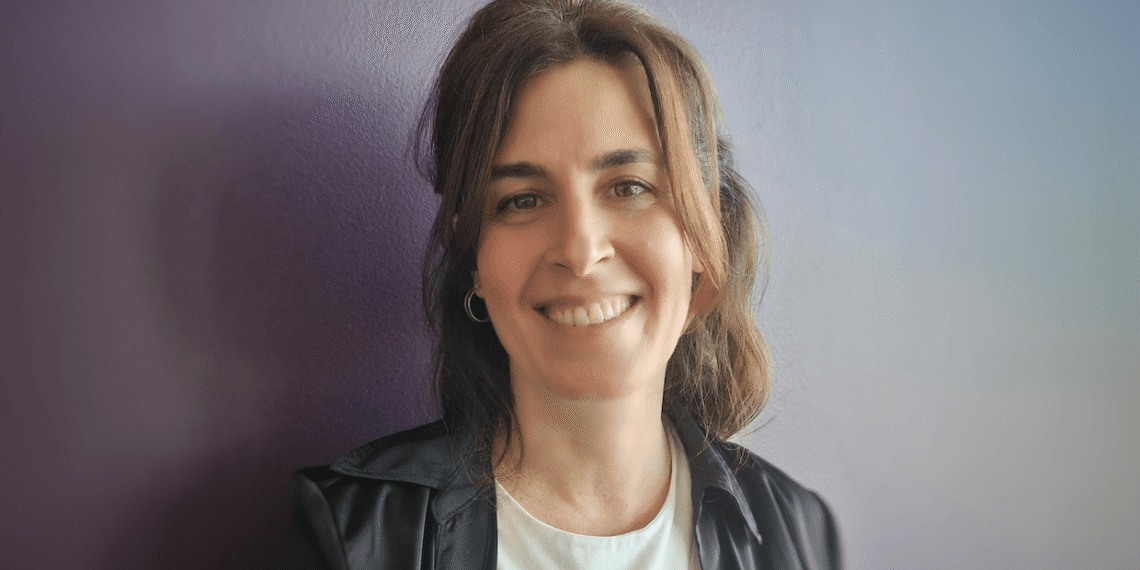Argentina is facing an unprecedented assault on its scientific and educational institutions under President Javier Milei’s libertarian administration. Sweeping budget cuts, halted research careers, and the dismantling of science and human rights agencies have destabilized the country’s knowledge ecosystem. As Dr. Laura Rovelli warns, “the government has deployed anti-science and denialist rhetoric that seeks to discredit and undermine the institutions of science and higher education.” This interview explores how Milei’s radical anti-statist agenda erodes academic autonomy, weakens evidence-based policymaking, and reshapes public education amid growing attacks on universities accused of being “ideologically captured.” Dr. Rovelli also highlights emerging networks of resistance—unions, students, feminist groups, and scholars—mobilizing to defend academic freedom, public knowledge, and democratic life.
Interview by Selcuk Gultasli
Argentina is experiencing one of the most turbulent periods for its scientific, educational, and democratic institutions since the return of democracy in 1983. The administration of President Javier Milei—elected on a platform of radical libertarianism, state retrenchment, and market fundamentalism—has initiated sweeping transformations that profoundly reshape the country’s knowledge ecosystem. As part of these reforms, universities, research councils, and scientific bodies have faced defunding, institutional downgrading, and political delegitimization. According to Dr. Laura Rovelli, an independent researcher at CONICET and Professor at the National University of La Plata (UNLP), the government’s approach is not merely administrative restructuring but a broader ideological project. As she warns, “the government has deployed anti-science and denialist rhetoric that seeks to discredit and undermine the institutions of science and higher education.”
In this extensive interview, Dr. Rovelli analyzes how Milei’s program of market deregulation, dollarization, and shrinking of the state challenges the very idea of knowledge as a public good in Argentina’s democracy. She describes a context in which political fragmentation and austerity policies deepen long-standing inequalities and erode the social meaning of rights—especially the right to education. University autonomy, she explains, is being weakened through severe budget cuts, salary reductions, canceled scholarships, and halted research careers, leaving more than 1,200 approved researchers unable to take up their positions.
Beyond material erosion, Dr. Rovelli highlights the symbolic and epistemic dimensions of the crisis. The dismantling of ministries and agencies devoted to science, gender equality, and human rights is accompanied by a discursive offensive aimed at delegitimizing academic expertise. Denialist narratives—targeting gender, climate change, inequality, and public health—have become central to Milei’s political identity and echo global far-right trends linked to Donald Trump and Jair Bolsonaro. This, she argues, represents a broader pattern of “global anti-statist populism,” even as Milei introduces a uniquely Argentine “anti-national component.”
Yet, amid the crisis, Dr. Rovelli identifies emerging forms of resistance and democratic renewal. Trade unions, student organizations, feminist movements, and academic networks have mobilized nationwide and internationally. Universities remain “privileged loci of dispute and possibility,” capable of defending epistemic diversity and rebuilding the common good through legal challenges, collective action, and alliances with social movements.
By foregrounding the struggles surrounding knowledge, education, and public goods, this interview offers a timely and nuanced perspective on Argentina’s democratic future. It reveals how the battle over science and universities has become a defining arena in the contest between neoliberal retrenchment and democratic-popular visions of society.
Here is the edited transcript of our interview with Dr. Laura Rovelli, slightly revised for clarity and flow.
Milei Is Dismantling Argentina’s Knowledge Commons

Dr. Laura Rovelli, thank you very much for joining our interview series. Let me start right away with the first question: Javier Milei’s program prioritizes radical market deregulation, dollarization, and the shrinking of the state. From a political theory perspective, how does this agenda challenge or redefine the idea of the common good in Argentina’s democracy?
Dr. Laura Rovelli: It’s a very interesting question because, in this scenario—one shaped by the conditions that current capitalism assumes in our region, based on unresolved historical tensions and inequalities—processes are unfolding that challenge the very notion of knowledge and education as common goods, as well as the idea of university education as a right. In this complex context, characterized by strong political fragmentation between various progressive movements, traditional neoconservative sectors, and, since 2023 and even earlier, extreme right forces, economic adjustment policies and different strategies are making life more precarious and affecting how we sustain common goods. Of course, this has deepened pre-existing inequalities by widening the gap in the distribution of social goods, including knowledge and education, and has reduced the political and social meaning of rights, even challenging the existence of the right to university or the right to education, and more broadly, the idea of knowledge as a common good.
Evidence-Based Governance Is Being Eroded Under Milei
Given your expertise in research policy and knowledge systems, how does Milei’s administration engage with—or marginalize—scientific and academic expertise in policymaking? What implications does this have for evidence-based governance?
Dr. Laura Rovelli: This is a crucial point. First of all, we might say that there are severe budget cuts being implemented. There is a real reduction in the salaries of teaching, research, and administrative staff, as well as cuts in scholarships, funding for research and outreach projects, and in the infrastructure and operational capacity of universities. This explicitly weakens their institutional framework and undermines their autonomy.
Secondly, the government has dismantled science, technology, and innovation bodies, agencies, departments, and programs linked to higher education, science, human rights, and culture, while also intensifying trends toward the commercialization and privatization of education and knowledge in general.
In addition, the recruitment of research careers has been at a standstill since December 2023, affecting more than 1,200 researchers who have been approved but have not been able to take their positions in the scientific system. There are very few openings for new recruits, and this has already led to a 20% drop in the number of applicants for scientific careers and doctoral and postdoctoral fellowships.
Third, the government has deployed anti-science and denialist rhetoric that seeks to discredit and undermine the institutions of science and higher education. In particular, there has been a denial or disqualification of issues such as gender, inclusion, inequality, and climate change. For example, state agencies dealing with gender and human rights issues have been dismantled, such as the Ministry of Women and the Argentine National Institute Against Discrimination, created in the mid-1990s. At the school system level, the implementation of a comprehensive sex education law, created at the beginning of the 21st century, has been subsumed into emotional literacy programs and training led by private organizations.
There is also a growing threat to the social sciences, humanities, and arts, which have been displaced from the research agenda in favor of technical areas considered “productive,” such as energy, mining, health, and genomics. In this context, the erosion of the evidence base for policymaking is compounded by government rhetoric that mixes false and biased information with a strong, aggressive tone in its interventions.
Public Education Is a Battleground in Argentina’s Democratic Crisis

Historically, Argentina’s public education system has been central to shaping civic identity and democratic values. How do you assess its current role in the face of Milei’s anti-establishment discourse and market-oriented reforms?
Dr. Laura Rovelli: Clearly, the Argentine university system has traditionally been characterized by a public state matrix that constitutes its identity. This can be observed quantitatively—in terms of enrollment, distribution, supply, and the weight of public state sector resources—and symbolically, due to the central role played by national universities within higher education institutions, reflecting a system with a low level of privatization compared with other countries in our region. However, in recent years, there has been an exacerbation of privatization and commodification processes in higher education. This is not new, but it has been intensified under the Milei administration.
In that sense, we can say that Argentina is facing one of the deepest crises in its higher education and scientific systems since the return of democracy in 1983. To mention some figures: in terms of gross domestic product, the university budget fell from 0.72% in 2023 to 0.57% in 2024 and is estimated to drop to 0.43% in 2025. The real salaries of professors have also declined during the Milei administration, by almost 30% compared with November 2023.
Additionally, the President’s refusal to implement the 2025 University Financing Law—a bill approved by an overwhelming majority in both chambers of Congress that aims solely to restore funding lost due to inflation—leaves the system without a basic foundation to function. By postponing its implementation, the executive power disregards the separation of powers and violates established rights in our democratic system.
So, in this scenario, the role of Argentina’s public education system in shaping civic identity and democratic values is under siege and threatened, yet it remains a place of dispute and tension—and also a space of possibility for building more democratic educational and social projects, as those of us who are fighting to defend the public system continue to do.
Anti-University Narratives Are Fueling Censorship and Harassment
Milei and his allies have criticized public universities as “ideologically captured.” How do such narratives affect academic freedom and the social legitimacy of higher education as a space for critical thought and democratic engagement?
Dr. Laura Rovelli: Clearly, academic freedom in this context is being affected in different ways and through various actions by the government. There are harassment, persecution, and censorship of academic teachers, researchers, scientists, and artists, alongside the promotion of hate speech and violence. In material terms, there has been an elimination of opportunities for dialogue and collective bargaining with teachers’ unions and trade unions. There are also harassment and expulsion of members of migrant academic communities, as well as barriers to international academic mobility.
These measures restrict research agendas and weaken the connection between academia, local issues, public policy, and global consensus on key matters such as health and the environment. For example, the Argentine government announced its withdrawal from the World Health Organization (WHO) in February 2025. Although this process faces legal obstacles and its implementation remains under debate, many civil and academic movements are fighting against it. The government’s decision is based on alleged differences in health management and the claim that international bodies interfere with national sovereignty—echoing the rhetoric of US President Donald Trump.
There are, therefore, many consequences of these attacks on science, knowledge, and academic freedom in Argentina today.
The Commodification of Knowledge Is No Accident

From your work on knowledge and open science as commons, how might we understand education itself—as both a public good and a political battleground—in Argentina’s ongoing struggle between neoliberal and democratic-populist projects?
Dr. Laura Rovelli: Regarding knowledge and science as a common good, Argentina was one of the first countries in the region to have, for example, an open access law. Public universities are the main promoters of diamond open access in the region—that is, an open access model where you don’t have to pay to publish or to read. There is also a vigorous movement of citizen science, scientific outreach, and university extension—what we call here the relationship with society—that is mainly led by universities. So, it’s not a coincidence that these institutions, the universities, are the targets of aggression and cutbacks by a pro-market and anti-statist government, and that through state defunding, private education and the commodification of knowledge are explicitly promoted.
In Argentina’s polarized climate, can any political actor—including the opposition—still credibly articulate a notion of the common good that transcends ideological fragmentation and social resentment?
Dr. Laura Rovelli: It is a very complex process at the moment, but we are confident that it is possible, in the medium and long term, to recover this notion and to strengthen the idea and the practices of common goods, particularly through sub-national and local governments, and also in dialogue with universities and social and territorial movements in Argentina.
Argentina’s Knowledge Sector Has Become a Hub of Organized Resistance

How have trade unions, student movements, feminist groups, and universities responded to Milei’s agenda? Do you see these actors as potential sources of democratic renewal or as fragmented voices of resistance?
Dr. Laura Rovelli: There are many movements of resistance, and they are potential sources of democratic renewal. Focusing particularly on universities and science movements, higher education and scientific institutions have implemented many legal measures. They have worked closely together—for example, the National Inter-University Council remains united and has drawn up different measures, such as legal actions. They drafted the university funding bill that was presented in Congress to secure and guarantee university funding. They have made several formal requests to the government, rejected the reduction of the 2026 budget, and, of course, led federal mobilizations across the country with the support of unions and students. They have coordinated various actions to defend public goods, education, and the public education system.
We also have another important network, the Argentine Network of Science and Technology Institutes’ Authorities, which has made progress in organizing mass demonstrations with the support of ordinary citizens. They have gathered international backing and submitted requests for access to public information on scientific issues, which have been denied by the government. They are also working in different sessions to coordinate strategies and actions to demand funding resources for the scientific sector and the appointment of authorities in several areas of science that remain vacant. There is also a lack of management in the scientific sector because the government has refused to approve or assign leadership positions.
Additionally, through the Latin American Council of Social Sciences, a program on qualitative and comparative studies in the Americas has been funded to promote comparative research and expand alliances between teachers and students. At universities, deliberative and collegial spaces in some institutions have been strengthened, and some are beginning to develop protocols and action plans in response to threats against students or professors. These are some of the examples I would like to highlight.
Milei’s Project Echoes Trump and Bolsonaro
Do you see Milei’s libertarian populism as part of a broader Latin American or global pattern of anti-statist populism—perhaps connected to figures like Bolsonaro or Trump—or as a uniquely Argentine phenomenon?
Dr. Laura Rovelli: No, of course, I believe that Milei’s libertarian populism is part of a broader global anti-statist populism. He is very much in dialogue with President Trump—he admires him. He also has contact with Bolsonaro. He’s not unique, but there is a component that many colleagues in political studies have highlighted: Milei has an anti-national component that is not as present in the cases of Bolsonaro or Trump. So that is something, if we may say, singular to his profile. But of course, he is in dialogue with a more global extreme right-wing movement.
Education Is the Key Arena for Restoring Democratic Purpose
And lastly, Dr. Rovelli, looking forward, what political, institutional, or civic initiatives could help restore faith in democratic governance and reconstruct a shared sense of purpose—the common good—in Argentina’s fractured public sphere?
Dr. Laura Rovelli: The role of universities and education in general is a key point. They are privileged loci or spaces of dispute and tension surrounding different educational, knowledge, science, and society projects that are in conflict in those spaces, where common goods and public goods—epistemic diversity—and substantive possibilities for democratization face critical setbacks in this scenario.
So, there are some initiatives of resistance, and also efforts to reposition more democratizing processes at universities and in educational spaces, that are very interesting. For example, the potential dynamism of subnational policies and local and inter-institutional alliances to curb or reverse unconstitutional or anti-democratic government measures; the complementarity of legal, political, epistemological, and pedagogical strategies to reverse coercion and harassment in educational settings; and the key role of regional and international alliances and coalitions of professors, students, and scientists in favor of academic freedom.
We should also mention the articulation and intersectorality with different social struggles of popular sectors—people who are displaced, harmed, or oppressed in our regions—and ultimately the proliferation of common deliberative, collegial, educational, and university projects in dialogue with society. These are some of the strategies and actions that we are carrying out in our systems.


